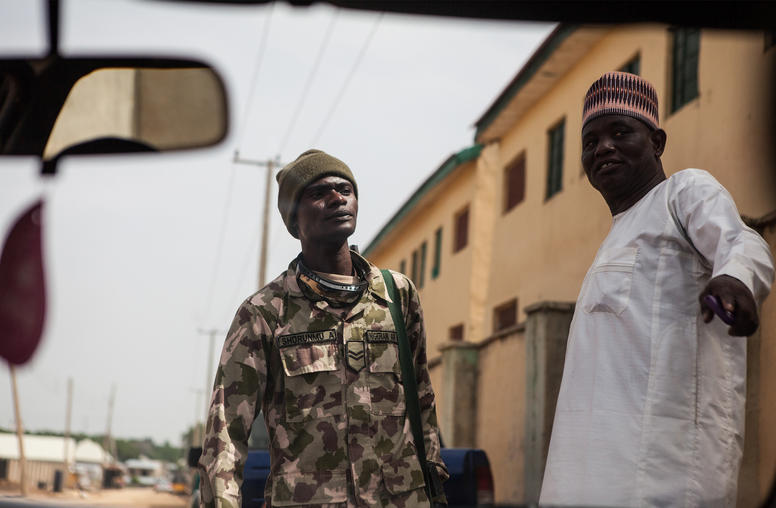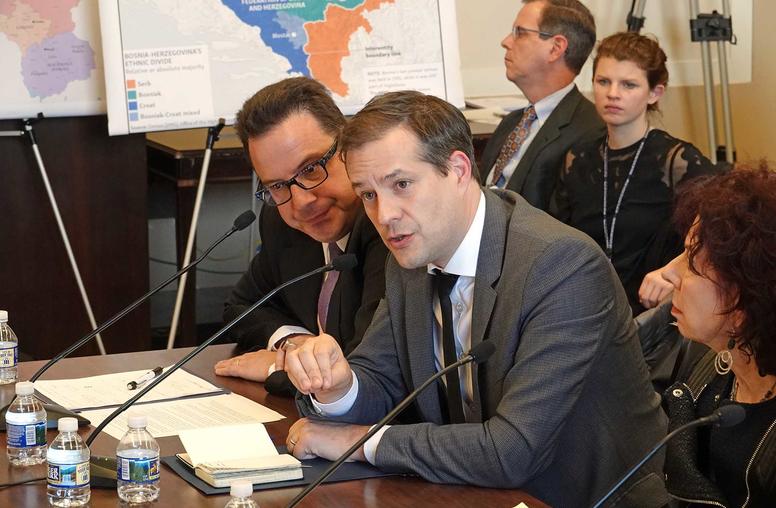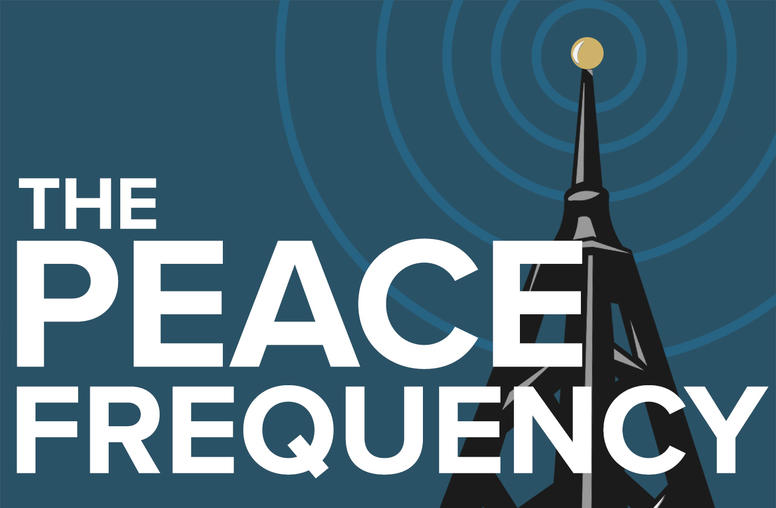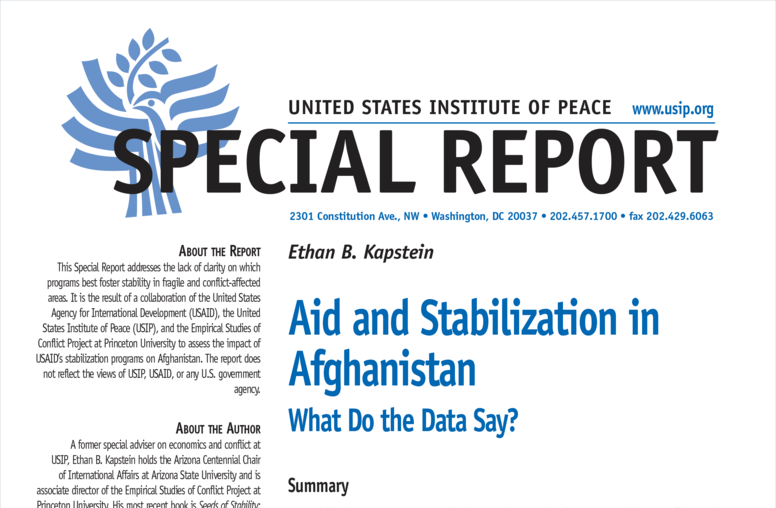Publications
Articles, publications, books, tools and multimedia features from the U.S. Institute of Peace provide the latest news, analysis, research findings, practitioner guides and reports, all related to the conflict zones and issues that are at the center of the Institute’s work to prevent and reduce violent conflict.

Sarhang Hamasaeed on Iraq’s Elections
Following the surprise win by controversial Shia cleric Moqtada al-Sadr and his Sairoon coalition in Iraq’s May 12 parliamentary elections, a new coalition government has yet to form. USIP’s Sarhang Hamasaeed analyzes what led to al-Sadr’s victory, low voter turnout at the polls, the state of the political process in Iraq, and Iraqis’ expectations for meaningful reform from the next government.

Thomas Hill on Libya
Since the fall of Muammar Qaddafi in 2011, successive U.S. administrations have watched Libya’s continuing collapse, mistakenly believing that the country’s unraveling threatens only Europe, says Thomas Hill. Ahead of the Palermo conference, which aims to find a solution to the crisis in Libya, Hill says that United States’ should play a more direct role in stabilizing the country.

Johnny Walsh on Election Season in Afghanistan
As Afghans wait for official results from the parliamentary polls, Johnny Walsh says that the country is already entering “high political season” in preparation for the critical April 2019 presidential election. Although the Taliban continues to carry out high-profile attacks across the country, Walsh says that many Afghans are focused on the presidential polls and its implications for the peace process.

Elie Abouaoun on Iraq a Year After the Fall of ISIS
Live from Baghdad as Iraqis celebrate the one-year anniversary of the fall of ISIS, Elie Abouaoun says that there is a sense of relief in the country over the terrorist group’s defeat and that elections happened this year. To maintain this positive momentum, adds Abouaoun, Iraq’s infrastructure must be rebuilt, and measures should be taken to reinforce social cohesion at the local level.

Civilian-Led Governance and Security in Nigeria After Boko Haram
Focusing on northeast Nigeria and the Lake Chad Basin, this Special Report outlines the rise of the Boko Haram insurgency in Nigeria and the security and governance challenges in the wake of its possible decline.

Moeed Yusuf on Pakistan’s Elections
On Pakistan’s Election Day, Moeed Yusuf analyzes the significance of the country holding its third democratic election in a row amid a persistent power imbalance between the military and civilian spheres. Concerning U.S. interests, Yusuf says American engagement with Pakistan must go beyond Afghanistan issues, which Islamabad does not view as a top priority.

The Dayton Legacy and the Future of Bosnia and the Western Balkans
Phillipe Leroux-Martin testifying in front of the House Foreign Affairs Committee on April 18, 2018.

Bill Taylor on Russian Elections and Putin’s Longevity
Earlier this week, Russia’s Vladimir Putin began his fourth term. Ambassador William B. Taylor explains that Putin’s political longevity is a combination of Russia’s desire to feel important in the world again, Putin’s power over the media, and the support of powerful, wealthy friends. Nevertheless, Taylor says harsh U.S. sanctions combined with those from the international community have isolated and punished Russia for Putin’s provocations in Ukraine and elsewhere, meddling in elections, and cyberwarfare.

Episode 51 - Meshack Simati
Our guest on this episode is USIP Peace Scholar, Meshack Simati, a Ph.D. candidate in political science at Georgia State University. His dissertation is titled, “The False Promise of the Judiciary in Reducing Election Violence among African Countries.” Together we explore the history of election violence in Kenya and other countries around the world. What is election violence? How does it impact the voting process and the outcome? What are the implication for the future? How do we prevent it?

Aid and Stabilization in Afghanistan
The question for international assistance efforts in fragile and conflict-affected countries is the extent to which aid programs are associated with changes in key metrics, including security, popular support for the government, community cohesion and resilience, population health, economic well-being, and internal violence. With an eye to lessons learned for the future, this report examines USAID stabilization programming in Afghanistan, focusing on whether it reduced violence, increased support for the government, and promoted other desirable political and economic outcomes.